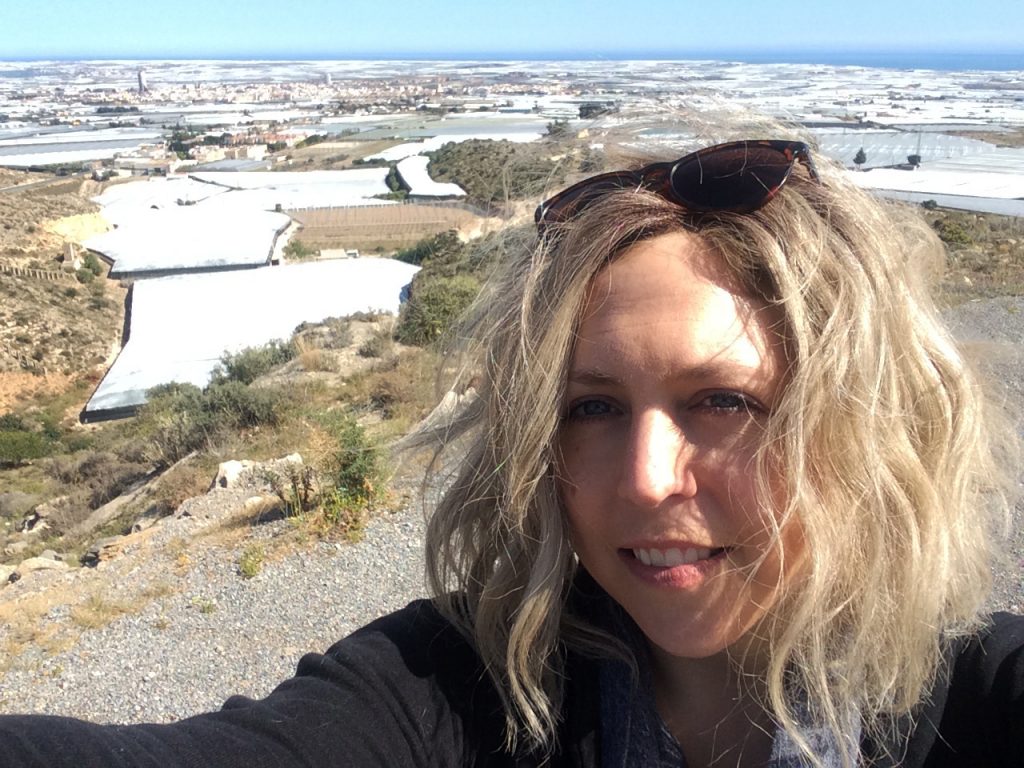
Victoria Brown, ‘14, a lecturer in the women, gender and sexuality studies program and Ph.D. candidate at Binghamton University, spent 2015 working in Spain for her field study on women’s labor in Almeria. Now, she’s the recipient of a grant for her work.
Brown received the grant from the American Association of University Women (AAUW), a nonprofit organization that works to promote equity and education for women and girls. Since August, AAUW has awarded more than $4 million in fellowships and grants to scholars, research projects and programs.
Brown earned her master’s degree in anthropology from BU in 2014. As a sociocultural anthropologist, she has dedicated her Ph.D. studies and dissertation to examining gender vulnerability and women’s labor within a capitalist system.
“I’ve always been fascinated by questions of women’s labor and how women’s labor sustains capitalism, as a mode of production, as a way of living, as a structuring framework to our lives,” Brown said. “I’m interested in not just what we traditionally think of as work, I’m also very interested in reproductive labor — the hidden underbelly and, in my opinion, purposefully occluded side of labor in this world under systems of capitalism. That would be work like mothering, pregnancy, breastfeeding, sexuality [and] household labor.”
Brown’s field study took her to El Ejido, Almeria, a small Andalusian town in southeastern Spain with an agricultural-based economy. The village primarily exports vegetables to northern Europe on a counter-seasonal cycle, made possible by the extensive use of plastic greenhouses, according to Brown.
“If you get up high on a mountain and you look across, you’re going to see just miles of plastic greenhouses,” Brown said.
Brown found El Ejido to be the ideal spot for her field study not only for the unique economy and setting, but for the population and political developments taking place. El Ejido is perceived as the birthplace of Vox, a political party in Spain established in 2013, which represents the far-right of Spain’s political climate. This area also has a high migrant population, which has allowed Brown to examine the relationships and interactions between migrant and native workers, primarily women.
“I’m very interested in the relationships that are made and forged between women migrant farm workers that are working in El Ejido and their encounters with ‘native’ Spanish citizen women, and what those relationships produce, and what they learn from each other even though these are certainly hierarchies of power,” Brown said. “I’m very interested in finding out what these relationships of difference and solidarity between different groups of women might be able to lead to, what kind of futures unfold through these solidarities or lack thereof. One of the effects of this, I’ve already discovered, has been the rise of far-right and anti-immigrant, as well as perhaps less emphasized anti-feminist groups and politics.”
Kim Churches, CEO of AAUW, said in a press release that Brown’s work is the type of research AAUW wants to see more of in academia.
“In the 130 years that AAUW has been providing funding, our fellows and grantees have contributed so much to their schools, their communities and to society at large,” Churches said. “We know that this year’s recipients will continue in that esteemed tradition, and we are honored to provide the resources they need to excel in their academic work and to ultimately make a difference in the world.”
According to Brown, she will use the grant to help complete her dissertation.
“It is, and always has been from day one, the plan to use my research and any qualities I might have that could be useful to better the position of working class, particularly women, and raising them up,” Brown said. “The grant is a way to finish your dissertation and apply for jobs and really make this project what is has the potential to be.”


